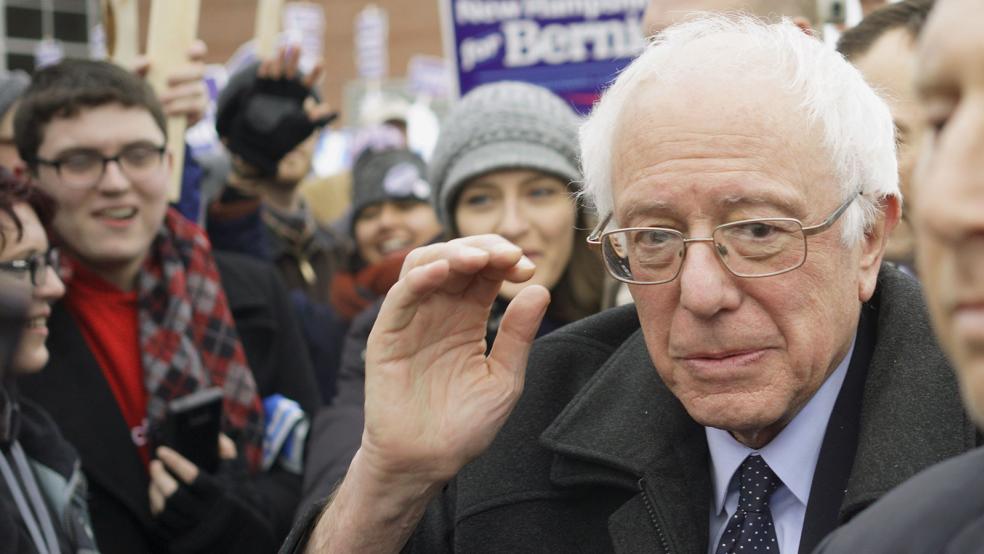A little over a year ago, Bernie Sanders expressed one of the themes of his presidential campaign in a speech at the Brookings Institution:
“We are moving rapidly away from our democratic heritage into an oligarchic form of society… billionaire families are now able to spend hundreds and hundreds of millions of dollars to purchase the candidates of their choice. The billionaire class now owns the economy, and they are working day and night to make certain that they own the United States government.”
This gets at the heart of the justification for our economic system. According to economic theory, one of the wonders of capitalism is that the pursuit of self-interest by individuals in society is guided, as if by an invisible hand, to maximize the collective social interest. Ruthless, cutthroat competition between individuals and businesses is magically transformed through the marketplace into a harmonious outcome that is best for society as a whole.
But there are important questions about the extent to which this describes how our economy actually works.
Related: Here’s Why Bernie Sanders’ 5% Growth Plan Isn’t Crazy After All
First, this result relies upon particular “rules of the game.” Who sets those rules, and are they set in a way that maximizes the social benefit or do they serve special interests? The model that produces the harmonious, socially optimal outcome relies upon several important assumptions. For example, it assumes there is pure competition. The existence of some degree of market power by firms, or unequal bargaining power between firms and workers, upsets this result.
If there are externalities – costs to society from the production of goods and services that firms do not have to pay – societal interests will not be maximized. Ideally, when there are deviations from the conditions needed to fully serve society’s interests, government will step in with agencies such as the Federal Trade Commission, or devices such as carbon taxes or cap-and-trade to realign private and public interests.
Can this happen when one class in society has enough political power to tilt the rules in its favor? Recently, “A novel conference at Harvard Business School brought together top scholars in order to answer the question: Is Milton Friedman’s dictum that firms that maximize shareholder value maximize social value as well still relevant in a post-Citizens United world?” It probably won’t come as a surprise to learn that “a majority of speakers and participants generally agreed that, among other things, firms maximize profits by also tweaking the rules of the game to their advantage.” Our democratic process does not give all members of society an equal voice in determining the rules of the game, some voices speak louder than others.
Related: The Pros and Cons of Bernie Sanders’ $50 Billion Tax Idea
A second question, a difficult one for me, is how the social interest is defined. Is it confined to US borders, or does it extend to people across the world? If a corporation moves jobs from the US to a developing country, to what degree should the fact that this lifts the incomes in developing nations, sometimes substantially, matter in thinking about how much it serves the social interest?
This is complicated by the fact that some people in the US care deeply about eliminating poverty in developing countries, and others are far more concerned with the impacts of trade on their own jobs, and what it means for their children or their local communities. The Democratic process is supposed to reconcile this by giving us all an equal say and then coming up with an answer, but there is good reason to question whether all interests are equitably represented in the political process.
There has also been a change in how well corporate interests are aligned with national interests and the interests of the communities they serve. At one time, these interests were closely aligned, but in today’s globalized economy corporations extend across national borders and shareholders come from different countries. When a corporation pulls up its stakes and moves to another part of the world in search of higher profits, what definition of social interest is being served? Should we be surprised that this is an issue in a national election that is based upon the interests of people within our borders, many of whom feel that their interests have been ignored?
Related: Bernie Sanders: ‘We Will Raise Taxes. Yes, We Will’
Finally, it should be noted that the social harmony result has little to say about wealth inequality. The social harmony result will prevail for any initial distribution of wealth, just or not. What does seem apparent is that inequality is an important factor behind the political capture that allows the rules to be tilted in favor of special interests, and that this has undermined the conditions needed for the marketplace to serve the broader social interest. Breaking up monopolies, adequate regulation of the financial sector, reducing the threat of global warming, enhancing the bargaining power of workers, and so on is more difficult, if not impossible when a small segment of society has undue influence over attempts to legislate change.
This is not an attempt to identify which presidential candidate has the best chance of moving us toward a more socially harmonious outcome, either incrementally or through revolution. You will have to decide that for yourself (though I will go so far as to say the ideas I hear about how to “make America great again” will do anything but).
Instead, this is an attempt to make the case that one of the justifications for our economic system, the idea that it magically produces an outcome that maximizes social welfare, relies upon assumptions that are increasingly distant from how our economic and political systems actually work. I don’t know if the forces that have allowed special interests to become so powerful can be overcome, but I am far more optimistic than I was before this year’s presidential campaign that change is on its way.






